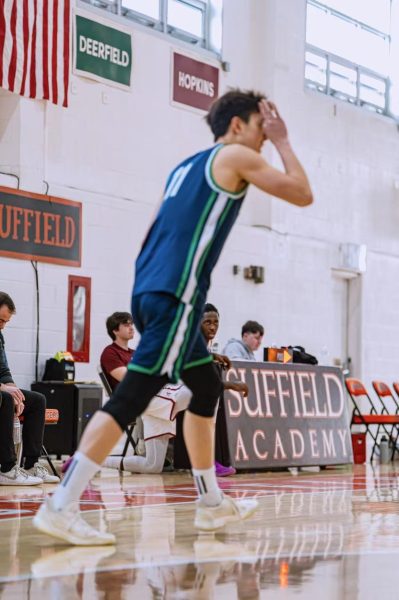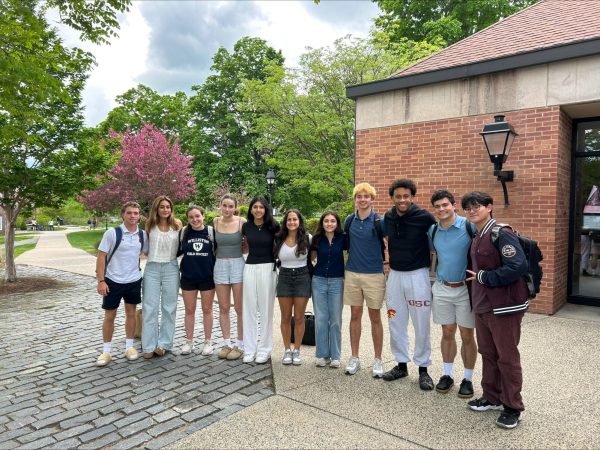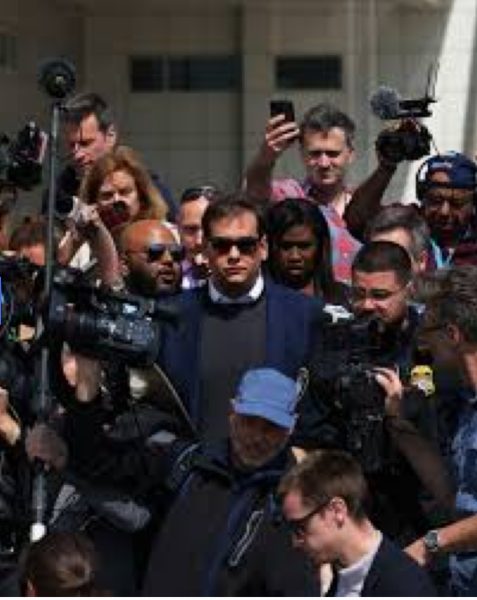Synagogue Hostage Situation Reveals Ugly, Continued Presence of Antisemitism
The recent attack on a Texas synagogue reflects a terrifying reality for American Jews, one of collective trauma and growing fear. Antisemitism is still alive and well, and it’s on the rise in the U.S.
This was reinforced on Saturday Jan. 15, with an incident at the Congregation Beth Israel in Texas.
Rabbi Charlie Cytron-Walker and three congregants at the synagogue were taken hostage by a gunman during Shabbat services. After almost 11 hours of a standoff, they managed to escape after Rabbi Cytron-Walker threw a chair at the gunman and told the other hostages to run. All hostages were able to escape without the gunman firing. A fourth hostage was released earlier that evening.
None of the hostages were injured, though they were “threatened the entire time,” according to Cytron-Walker in an interview with CBS.
The suspect, later identified as Malik Faisal Akram, has been pronounced dead. It is unclear if police killed him, or if he took his own life after the incident.
Grace Bean, a boarding senior from Cambridge Mass., is one of the leaders of Williston’s Jewish Club. She said that when she heard about the synagogue hostages, she was “mortified that a place of worship could be harmed like this.”
Grace told The Willistonian that a few years ago, someone burnt down the flag that hangs outside the synagogue she belongs to in Northampton, Congregation B’nai Israel.
While Grace feels safe in the U.S. as a Jewish person, she is “nervous for Jewish people who live in Texas after this event, and [wonders] if it will [instigate] more violence against Jewish people in the future, and test the safety of the Jewish population in America.”
Avi Falk, a boarding senior from Longmeadow Mass., is another active Jewish voice on the Williston campus.
“I wasn’t exactly surprised,” he said after learning of the attack. “I was getting dinner with my dad and he told me. It was the same way he told me about Pittsburgh.”
He said that he feels pretty safe as a Jewish person at Williston and in the U.S. His synagogue has safety measures in case of a situation like the one in Texas.
“In all of the seat pockets there are cards explaining what to do during an active shooter crisis, and the Rabbi and some members of the congregation go through drills,” he said. “During high holidays there are always police and security.”
Rabbi Cytron-Walker’s actions during the attack have been inspirational to many across America. However, his story of bravery and compassion extends far beyond that day.
The rabbi is a strong advocate for social justice, LGBTQ+ rights and feminism, and helps to lead the Reform Rabbis Small Congregations Network, a subset of the 800 to 900 reform congregations in the US. He has roots right here in the Pioneer Valley, as the former Assistant Director of the Amherst Survival center, where he worked for two years.
On January 15, he let the attack suspect into Congregation Beth Israel because he thought the man needed shelter. The rabbi even made him a cup of tea and sat with him to talk before the incident during the prayer service. Rabbi Cytron-Walker said that he “heard a click … and it turned out that it was his gun.”
Rabbi Cytron-Walker emphasized that they were able to get out of the situation because of the safety training he had attended in the past with the FBI, the Colleyville Police Department, the Anti-Defamation League, and Secure Communities networks.
He spoke with President Biden after the incident.
“I just want to give thanks and appreciation for all of the love and all of the support from the Jewish community, my people; from the Muslim community; from the Christian community; from all faiths, all backgrounds,” Rabbi Cytron-Walker said. “Friends, acquaintances, strangers all over the world. It’s truly been overwhelming.”
White House national security advisor Jake Sullivan called the situation an “act of terrorism” and “antisemitism,” backpedaling after the F.B.I.’s initial reports said that they did not believe the attack was motivated by antisemitism.
Grace said that she sees Rabbi Cytron-Walker’s actions as a reflection of the kindness and strength of rabbis all over the world.
“My rabbi has been in many protests and has been arrested for silent protests, too,” she said. “Rabbis have always been good Samaritans without compensation, simply because they believe strongly in certain things and it’s very inspiring. Hearing the story about this Rabbi just confirms what I already knew about the leadership and mental toughness, along with physical ability it takes to be a good Rabbi.”
Antisemitism is growing in America, yet it rarely is publicly addressed. Attacks such as this one are headlines for a few days, and then seem to become glossed over. However, American Jews cannot simply move on from this.
Over the past few years, many antisemitic crimes have swept the Jewish community. This hate has ranged from the armed and torch carrying neo-Nazis menacing a local synagogue in 2017, the Tree of Life Synagogue attack in 2018, to the Chabad synagogue killing in 2019, and the violence in New York and New Jersey in 2019 when Orthodox Jews in New York were assaulted and beaten on the streets and a machete wielding man attacked a rabbi’s home during a Hanukkah party.
The 2018 shooting of the Tree of Life Congregation in Pittsburgh was the deadliest antisemitic attack in U.S. history, and was a major turning point for American Jews. The synagogue was attacked when a man shouting antisemitic slurs shot and killed 11 people. Many Jews regard safety in America as pre and post Tree of Life shooting.
According to a 2021 survey from the American Jewish Committee, a leading Jewish communal advocacy group, 24 percent of American Jews said that an establishment they were connected to had dealt with targeted antisemitism in the past five years. Ninety percent of American Jews said that antisemitism was an issue in the U.S., and 82 percent said that antisemitism had been increasing within the past five years.
Grace said that traveling to Israel helped her to connect to her Jewish identity.
“If I had read the articles published about this event before going to Israel it wouldn’t have impacted me the same way,” she said. “When something like this happens, it affects the entire Jewish community.”
With these antisemitic hate crimes on the rise, Jewish people around the world, in the U.S. and even here at Williston, worry about their safety, while continuing to feel that their voices are not recognized.
Grace said that she is “proud of the antiracism efforts made by the Dean of Diversity [Equity, Inclusion and Belonging] at Williston.” She also thinks that it is important for the department to “help educate the community on what this [antisemitism and the Texas attack] means and how important it is.”
Williston hired a new Dean of DEIB, Nikki Chambers, in 2021. However, Grace thinks that that this position needs to include more acknowledgment of antisemitism at Williston.
“What affects one small Jewish community affects anyone that is closely connected to their Jewish identity,” she said. “Therefore, Williston students could feel unsafe and it’s important … this is addressed, as any other racial or religious attack would be addressed. ”
Grace said she has made sure to be outspoken about the Jewish experience during her time at Williston, and mentioned her Williston Scholars projects on Jewish identity as a form of activism.
“I don’t think the struggle of the Jewish people is talked about enough at Williston,” she said. “I’ll continue to attempt to educate the community, because over the years the Jewish population at Williston has almost tripled, and we aren’t recognized enough on campus.”













